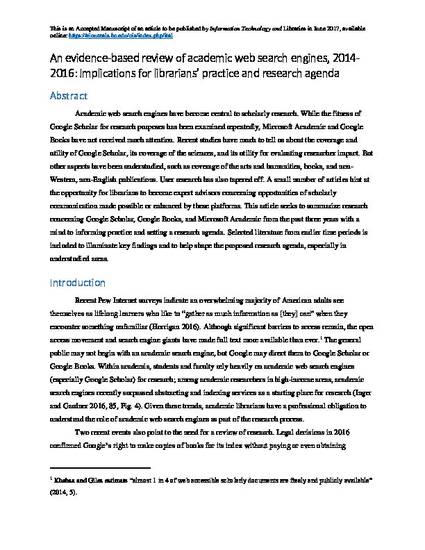
Academic web search engines have become central to scholarly research. While the fitness of Google Scholar for research purposes has been examined repeatedly, Microsoft Academic and Google Books have not received much attention. Recent studies have much to tell us about the coverage and utility of Google Scholar, its coverage of the sciences, and its utility for evaluating researcher impact. But other aspects have been understudied, such as coverage of the arts and humanities, books, and non-Western, non-English publications. User research has also tapered off. A small number of articles hint at the opportunity for librarians to become expert advisors concerning opportunities of scholarly communication made possible or enhanced by these platforms. This article seeks to summarize research concerning Google Scholar, Google Books, and Microsoft Academic from the past three years with a mind to informing practice and setting a research agenda. Selected literature from earlier time periods is included to illuminate key findings and to help shape the proposed research agenda, especially in understudied areas.
Available at: http://works.bepress.com/jodyfagan/86/

This is an Accepted Manuscript of an article to be published by Information Technology and Libraries in June 2017, available online: https://ejournals.bc.edu/ojs/index.php/ital